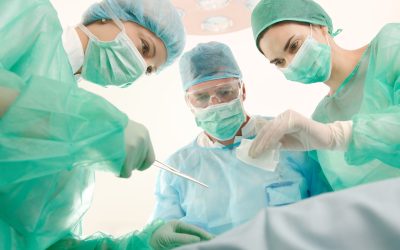Your patients may have never heard of a pop-off suture, but they may have already had them by the time you see them. These sutures are some of the most common in medicine today due to their versatility. While it is difficult to say whether they are better or worse than other types of sutures, their many uses and benefits make them the choice of surgeons in many applications.
Efficient and Precise
The faster you can suture a site closed, the safer it is for the patient. Likewise, the more precise you can be, the better the site’s healing will be. Balancing efficiency and precision can be difficult, but the detachable mechanism of these sutures can help you do exactly that, delivering the best possible healing outcomes.
Versatile
These sutures are also very versatile. While not suitable for every procedure, they are great for a variety of uses, both in the office and in the surgical suite.
Safe
There are several ways you can improve safety for yourself, your team, and your patients with pop-off needles. First, you reduce the amount of handling that the tissues, the materials, and the instruments used in suturing require. You can even reduce the number of instruments needed. All of this improves healing outcomes and reduces the risk of infection and irritation to tissues.
Likewise, you also reduce the risks to your team inherent to suturing since there is less handling, fewer sharp instruments needed, and a shorter overall time to finish the process.
Potential Drawbacks
While there are many reasons to choose a pop-off suture for your practice, it is also important to understand its limitations. Some reasons you might reconsider using a pop-off suture include:
• Cost. These sutures may be more expensive than traditional sutures, which can quickly add up and add to a patient’s cost of care.
• Not suitable for every application. While these sutures are versatile, they are not appropriate for every use. Complicated surgeries may require specific sutures for maximum control, better healing, or other reasons.
• Personal preference. If you or your team have more experience with other types of sutures, you may prefer those. This is why it is a good idea to try out a new suture before committing to using it in your practice.
Contact Sharp Fluidics for more information.


